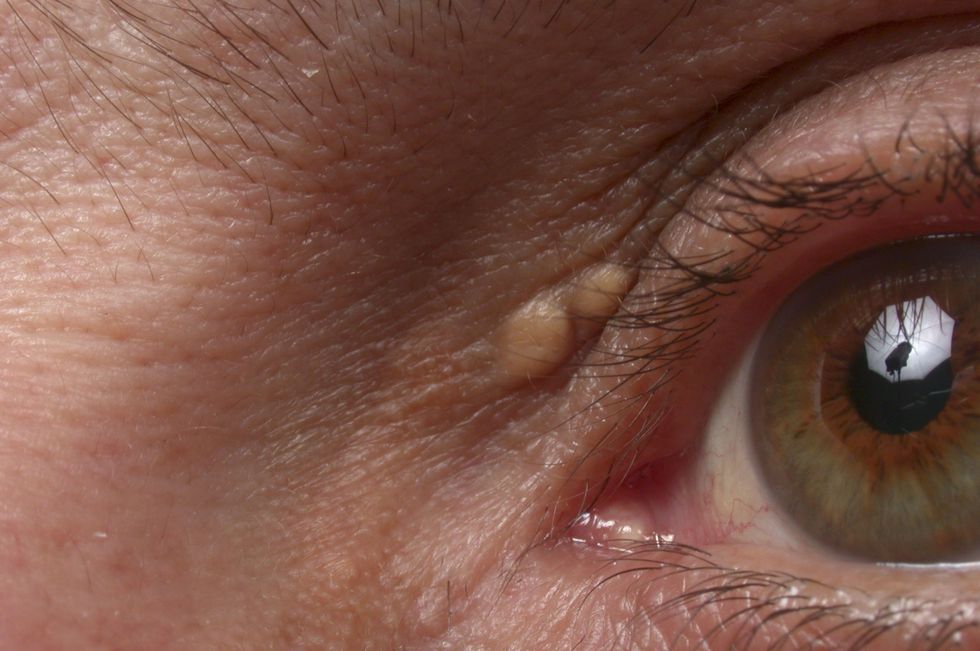Cholesterol levels can be checked with a blood test
PA
Despite common beliefs, high cholesterol isn’t limited to those who are overweight
Don't Miss
Most Read
Trending on GB News
Over half of Britons have dangerously high cholesterol levels but many are unaware they are at risk, alarming new data has revealed.
The findings were released by blood testing company Medichecks, during Heart Awareness Month, as heart disease remains the leading cause of death in the UK.
Cholesterol is a vital fatty substance produced in the liver to maintain cell membranes and produce vitamin D and hormones.
It typically shows no symptoms, but the medical director at Medichecks, Dr Natasha Fernando explained that in some cases, patients report two early signs and four additional complications down the line.

Early signs include yellowish bumps on the eyelid
GETTY
Early signs may include yellowish bumps around the eyelids and greyish rings around the cornea.
More advanced symptoms could include chest pain, shortness of breath, dizziness, and confusion, Dr Fernando cautioned.
These could indicate serious complications like heart attacks or strokes which require immediate medical attention.
The medical director explained: “There are two types of cholesterol - good and bad.
“High-density (HDL) helps remove excess cholesterol from the bloodstream, while low-density lipoproteins (LDL) carry cholesterol to the arteries.
“Too much LDL can lead to blockages in blood vessels, increasing the risk of heart disease and stroke.
“Many people assume they’re safe just because they don’t look unhealthy. But the reality is that high cholesterol can affect anyone, regardless of their weight, diet or lifestyle. The only way to know your risk is to get tested.”
One in every 250 Britons is born with dangerously high cholesterol due to a genetic condition familial hypercholesterolaemia (FH).
LATEST DEVELOPMENTS

Dietary interventions can significantly lower cholesterol levels
GETTY
Unlike other cholesterol cases, this condition is caused by a gene mutation preventing the body from clearing harmful LDL cholesterol from the bloodstream.
When inherited, people with the condition face heart attack risks decades earlier than one would expect.
How to reduce your cholesterol:
While some cases of high cholesterol may warrant treatment with statins, simple lifestyle changes can also help.
Dr Fernando recommends eating heart-healthy foods rich in nuts and olive oils and walking for at least 20 minutes a day. Quitting smoking is also widely advised for better heart health.








